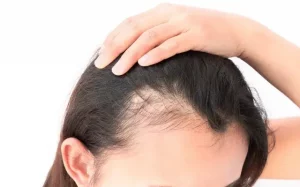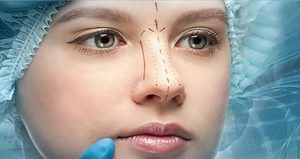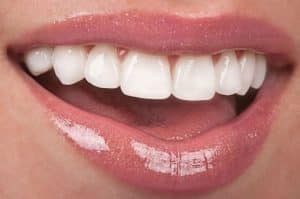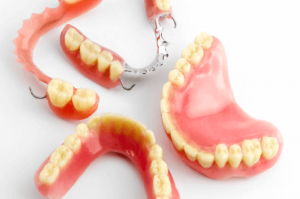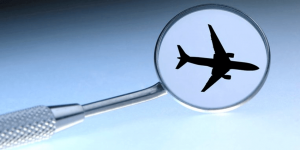Hair loss is a depressing and unpleasant event that we all have to deal with as we age. Hair is a significant part of who we are as people and how we show ourselves to others. That is why thinning hair is such a big issue. It can be a really worrisome topic for a lot of people because there isn’t a quick answer for growing more hair. The relationship between hormones and hair loss is more than you think, so, let’s take a look at it!
Hair loss is an unwelcome and painful process that, unfortunately, most of us must endure as we get older. Hair thinning and dryness are indicators of internal body changes. Some people believe that hair loss is an inherent aspect of growing older or a reaction to stress. However, it is commonly connected to the relationship between hormones and hair loss.
Although inheritance is by far the most prevalent cause of baldness in both men and women, hair loss can also be caused by reasons other than genetics. The relationship between hormones and hair loss is one of them. Thinning hair is often one of the first signs of a hormone imbalance. Women going through menopause or who have been diagnosed with an underactive thyroid are at risk of hair loss. Moreover, anybody who has gone through a traumatic incident – such as the death of a loved one or a serious accident – is at risk for hair loss.
Relationship Between Stress and Hair Loss
Stress hormones have the potential to be just as destructive. Being stressful directly affects the relationship between hormones and hair loss. To nourish their cells, your hair follicles require a constant supply of oxygen, protein, vitamins, and minerals. As part of the normal fight-or-flight reaction, blood is redirected from your skin to your muscles and brain when you’re under a lot of stress. Therefore, the blood arteries supplying your hair follicles constrict. As a result of the reduced flow of nutrients, your hair loses its shine and becomes lifeless and thin.
Stress also disturbs your hair follicles’ natural life cycle, leading them to enter the telogen or shedding phase. Resulting in more hair loss than usual. The relationship between hormones and hair loss is one of the biggest reasons that you are losing your hair. Regularly, the follicles surrounding your head are at different stages of growth, so some shed their hair while the majority grow normally. Furthermore, you only lose a specific number of hairs every day. However, if your body has been exposed to a stressful incident, you will likely shed many more hairs quickly.
Hormones’ Impact on Hair Loss
Hormones, have a significant effect on hair health. The number of hair follicles in the anagen phase is known to increase during pregnancy. Because of the increased availability of progesterone and estradiol hormones during pregnancy, this is the case. These hormones are especially good for hair, as they promote hair growth and reduce shedding. It is known that the relationship between hormones and hair loss is highly close.When your hormones re-equilibrate around three months after giving birth, you may experience tremendous hair loss. The good news is that most women will gradually heal and their hair will soon return to normal.
Apart from pregnancy, when you reach menopause, you will experience a lot of hair loss. This is due to a significant drop in progesterone and estradiol hormone levels. It’s worth noting that, unlike the postpartum hair loss, hair loss caused by menopause is irreversible.
The polycystic ovarian syndrome is another prevalent disorder that can cause hair loss in women (PCOS). It is one of the factors that affect the relationship between hormones and hair loss. PCOS raises androgen levels, leading women lose hair on their scalp. Moreover, have it grow in places it shouldn’t, such as their face, chest, and back.
Finally, the thyroid hormone can have a significant effect on your hair. The thyroid hormone is involved in almost every bodily function. When the thyroid system is underactive, as it is with hypothyroidism, our metabolism slows down, and we pay less attention to the less important physiological functions. Hair is dry, brittle, dull, and thinned down with hypothyroidism, and even eyebrow hair might fall out!
When the opposite is true, and there is too much thyroid hormone (Graves’ illness), hair falls out as well. Thyroid illness can cause noticeable changes in energy levels and mood. People with hypothyroidism often feel weary, sluggish, depressed, and constipated. Check your thyroid levels and talk to your doctor about thyroid hormone therapy if symptoms are present. When thyroid disorders are corrected, the hair usually regrows. If you are suffering from hair loss, you can come to Smile Team Turkey and get a hair implant. All in all, the relationship between hormones and hair loss is very close and it takes more than genetics to lose your hair.
You can read our previous article about hair transplant method from https://smileteamturkey.com/blog/why-is-turkey-number-one-in-hair-transplantation/
You can read our previous article from https://smileteamturkey.com/blog/the-difference-between-hair-transplantation-and-implantation/.
